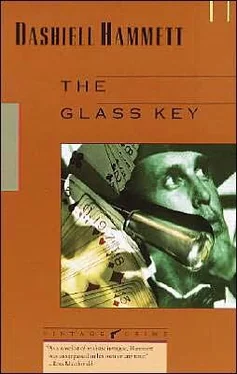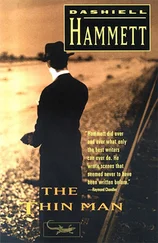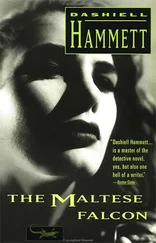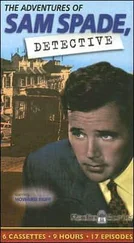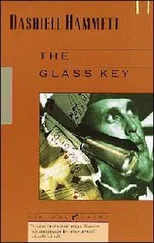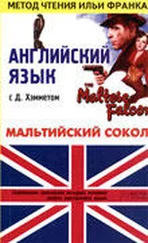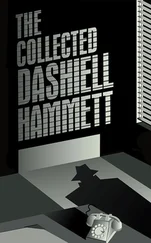He said: "'Lu, Mom. What are you doing up so late?"
She said, "I thought it was Paul," though she looked at him without disappointment.
"Isn't he home? I wanted to see him." He looked sharply at her. "What's the matter?"
The old woman stepped back, pulling the door back with her. "Come in, Ned."
He went in.
She shut the door and said: "Opal tried to commit suicide."
He lowered his eyes and mumbled: "What? What do you mean?"
"She had cut one of her wrists before the nurse could stop her. She didn't lose much blood, though, and she's all right if she doesn't try it again." There was as little of weakness in her voice as in her mien.
Ned Beaumont's voice was not steady. "Where's Paul?"
"I don't know. We haven't been able to find him. He ought to be home before this. I don't know where he is." She put a bony hand on Ned Beaumont's upper arm and now her voice shook a little. "Are you—are you and Paul—?" She stopped, squeezing his arm.
He shook his head. "That's done for good."
"Oh, Ned, boy, isn't there anything you can do to patch it up? You and he—" Again she broke off.
He raised his head and looked at her. His eyes were wet. He said gently: "No, Mom, that's done for good. Did he tell you about it?"
"He only told me, when I said I'd phoned you about that man from the District Attorney's office being here, that I wasn't ever to do anything like that again, that you—that you were not friends now."
Ned Beaumont cleared his throat. "Listen, Mom, tell him I came to see him. Tell him I'm going home and will wait there for him, will be waiting all night." He cleared his throat again and added lamely: "Tell him that."
Mrs. Madvig put her bony hands on his shoulders. "You're a good boy, Ned. I don't want you and Paul to quarrel. You're the best friend he ever had, no matter what's come between you. What is it? Is it that Janet—?"
"Ask Paul," he said in a low bitter voice. He moved his head impatiently. "I'm going to run along, Mom, unless there's something I can do for you or Opal. Is there?"
"Not unless you'd go up to see her. She's not sleeping yet and maybe it would do some good to talk to her. She used to listen to you."
He shook his head. "No," he said, "she wouldn't want to see me"—he swallowed—"either."
1
Ned Beaumont went home. He drank coffee, smoked, read a newspaper, a magazine, and half a book. Now and then he stopped reading to walk, fidgeting, around his rooms. His door-bell did not ring. His telephone-bell did not ring.
At eight o'clock in the morning he bathed, shaved, and put on fresh clothes. Then he had breakfast sent in and ate it.
At nine o'clock he went to the telephone, called Janet Henry's number, asked for her, and said: "Good morning. . . . Yes, fine, thanks. . . . Well, we're ready for the fireworks. . . . Yes. . . . If your father's there suppose we let him in on the whole thing first. . . . Fine, but not a word till I get there. . . . As soon as I can make it. I'm leaving now. . . . Right. See you in minutes."
He got up from the telephone staring into space, clapped his hands together noisily, and rubbed their palms together. His mouth was a sullen line under his mustache, his eyes hot brown points. He went to the closet and briskly put on his overcoat and hat. He left his room whistling Little Lost Lady between his teeth and took long steps through the streets.
"Miss Henry's expecting me," he said to the maid who opened the Henrys' door.
She said, "Yes, sir," and guided him to a sunny bright-papered room where the Senator and his daughter were at breakfast.
Janet Henry jumped up immediately and came to him with both hands out, crying excitedly: "Good morning!"
The Senator rose in more leisurely manner, looking with polite surprise at his daughter, then holding his hand out to Ned Beaumont, saying: "Good morning, Mr. Beaumont. I'm very glad to see you. Won't you—?"
"Thanks, no, I've had breakfast."
Janet Henry was trembling. Excitement had drained her skin of color, had darkened her eyes, giving her the appearance of one drugged. "We have something to tell you, Father," she said in a strained uneven voice, "something that—" She turned abruptly to Ned Beaumont. "Tell him! Tell him!"
Ned Beaumont glanced obliquely at her, drawing his brows together, then looked directly at her father. The Senator had remained standing by his place at the table. Ned Beaumont said: "What we've got is pretty strong evidence—including a confession—that Paul Madvig killed your son."
The Senator's eyes became narrower and he pot a hand flat on the table in front of him. "What is this pretty strong evidence?" he asked.
"Well, sir, the chief thing is the confession, of course. He says your son ran out after him that night and tried to hit him with a rough brown walking-stick and that in taking the stick away from your son he accidentally struck him with it. He says he took the stick away and burned it, but your daughter"—he made a little bow at Janet Henry—"says it's still here."
"It is," she said. "It's the one Major Sawbridge brought you."
The Senator's face was pale as marble and as firm. "Proceed," he said.
Ned Beaumont made a small gesture with one hand. "Well, sir, that would blow up his story about its being an accident or self-defense—your son's not having the stick." He moved his shoulders a little. "I told Farr this yesterday. He's apparently afraid to take many chances—you know what he is—but I don't see how he can keep from picking Paul up today."
Janet Henry frowned at Ned Beaumont, obviously perplexed by something, started to speak, but pressed her lips together instead.
Senator Henry touched his lips with the napkin he held in his left hand, dropped the napkin on the table, and asked: "Is there—ah—any other evidence?"
Ned Beaumont's reply was another question carelessly uttered: "Isn't that enough?"
"But there is still more, isn't there?" Janet demanded.
"Stuff to back this up," Ned Beaumont said depreciatively. He addressed the Senator: "I can give you more details, but you've got the main story now. That's enough, isn't it?"
"Quite enough," the Senator said. He put a hand to his forehead. "I cannot believe it, yet it is so. If you'll excuse me for a moment and"—to his daughter—"you too, my dear, I should like to be alone, to think, to adjust myself to— No, no, stay here. I should like to go to my room." He bowed gracefully. "Please remain, Mr. Beaumont. I shall not be long— merely a moment to—to adjust myself to the knowledge that this man with whom I've worked shoulder to shoulder is my son's murderer."
He bowed again and went out, carrying himself rigidly erect.
Ned Beaumont put a hand on Janet Henry's wrist and asked in a low tense voice: "Look here, is he likely to fly off the handle?"
She looked at him, startled.
"Is he likely to go dashing off hunting for Paul?" he explained. "We don't want that. There's no telling what would happen."
"I don't know," she said.
He grimaced impatiently. "We can't let him do it. Can't we go somewhere near the front door so we can stop him if he tries it?"
"Yes." She was frightened.
She led him to the front of the house, into a small room that was dim behind heavily curtained windows. Its door was within a few feet of the street-door. They stood close together in the dim room, close to the door that stood some six inches ajar. Both of them were trembling. Janet Henry tried to whisper to Ned Beaumont, but he sh-h-hed her into silence.
They were not there long before soft footfalls sounded on the hall-carpet and Senator Henry, wearing hat and overcoat, hurried towards the street-door.
Ned Beaumont stepped out and said: "Wait, Senator Henry."
Читать дальше
